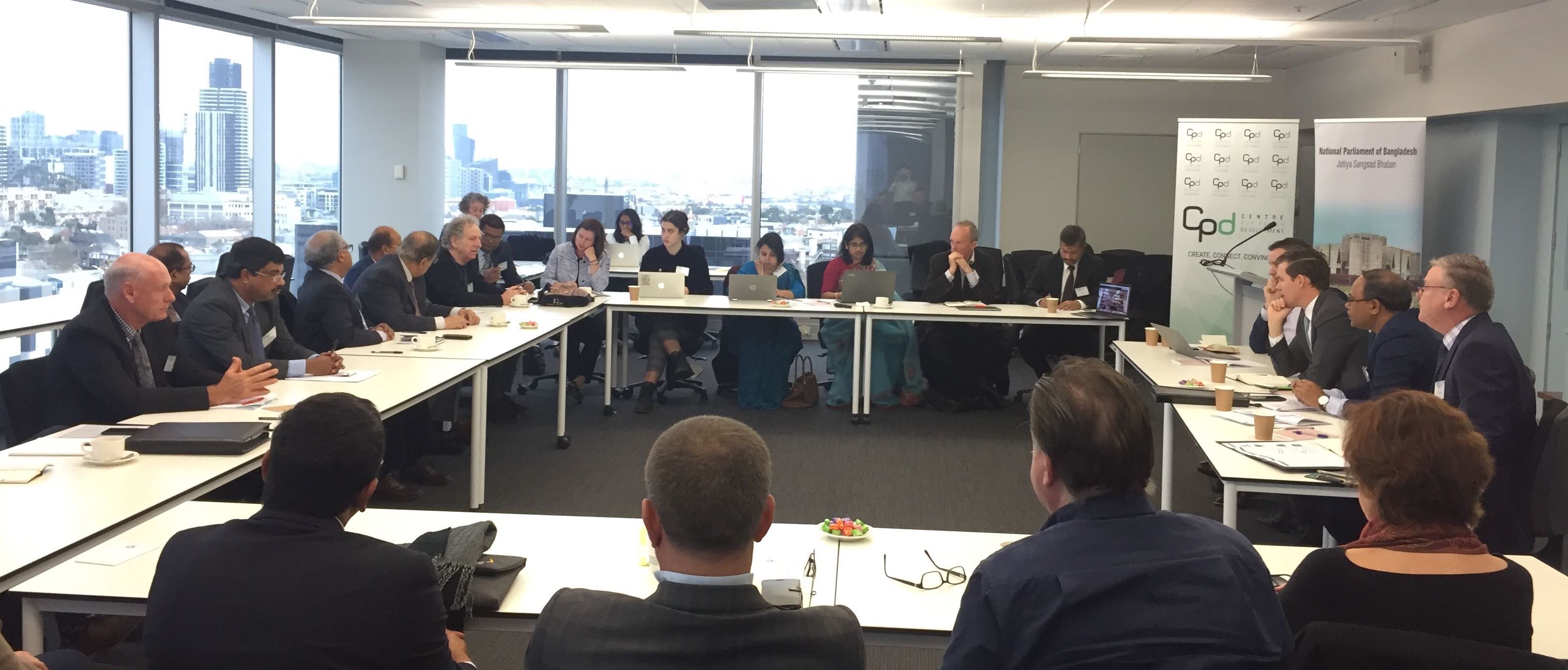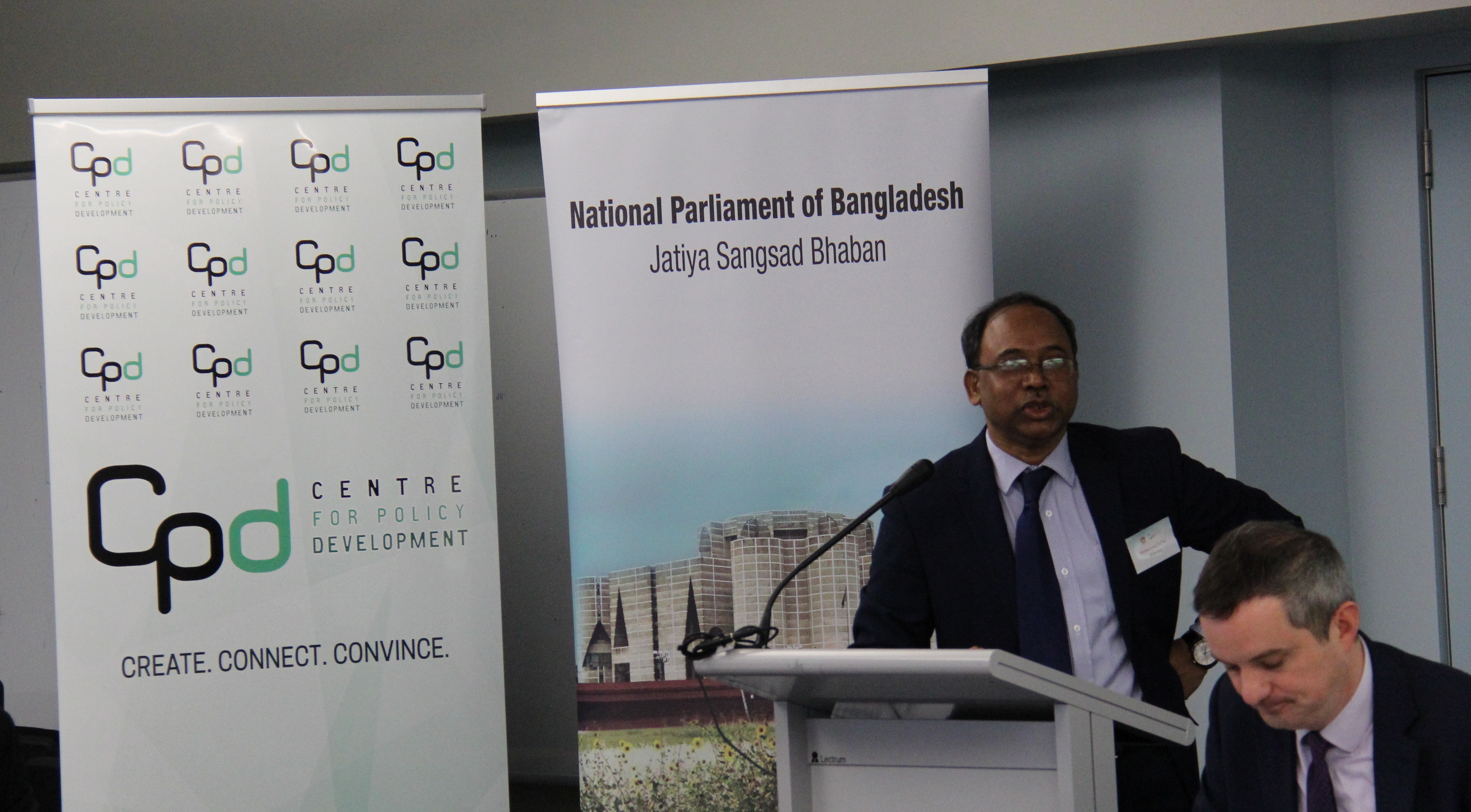
Yesterday, CPD co-hosted a special roundtable event with the Bangladesh High Commission on ‘Bangladesh and its Emerging Role in the Region: Bilateral Relations and Challenges for the Region from Forced Displacement’ in Melbourne.
We were fortunate to have a terrific line up of speakers and panellists, including H.E. Sufiur Rahman (High Commissioner of Bangladesh to Australia, New Zealand and Fiji), Chris Carter (former Member of the New Zealand Parliament and Senior UN Advisor for Rakhine State), Erika Feller (Vice Chancellor’s Fellow at Melbourne University and former UNHCR Assistant High Commissioner) Andrew Collins (Assistant Secretary, South Asia Branch, DFAT), Nicholas Farrelly (Associate Dean in the ANU College of Asia and the Pacific) and Travers McLeod (CEO, Centre for Policy Development) and Annabel Brown (Program Director, Centre for Policy Development).
The half-day roundtable discussion focused on two main topics:
a) Emerging Bangladesh and opportunities for diversifying and strengthening the Australia-Bangladesh relationship;
b) Forced migration and other regional challenges in the Bay of Bengal, and how the region can better respond to the current displacement crisis, contribute to a durable solution and avoid regional instability.

Bangladesh has made significant social and economic progress in recent years, staking its claim as an emerging middle power. It has seen persistent economic growth in the range of 6-7% in the last decade. This growing economy and its relevance on the regional stage create new opportunities for bilateral engagement between Australia and Bangladesh.
Amidst this considerable economic progress, Bangladesh is also effectively managing the largest displacement crisis in the region: the influx of over 700,000 Rohingya who have fled violence in Rakhine State, Myanmar since August 2017. Comprehensive and coordinated regional response is essential to both support the emergency response, and contribute to a durable solution in Rakhine State.
Thirty people from government, civil society, business and academia participated in the roundtable, which was also kindly supported by the Peter McMullin Centre on Statelessness at the University of Melbourne.



